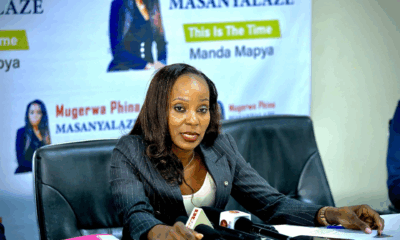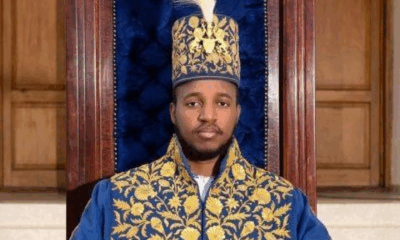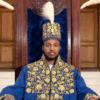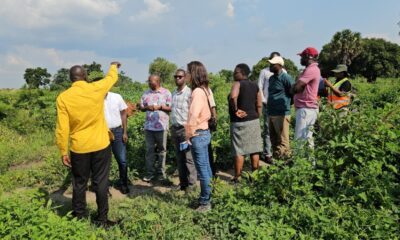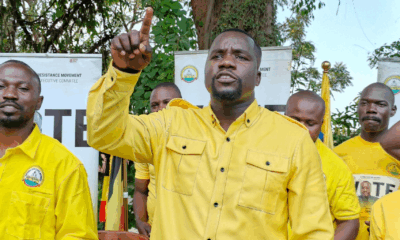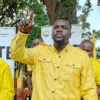News
Ugandans reject torture by the state

Tortured Kakwenza Rukirabashaija (left) with his scarred back (right)
There is palpable anger, fear and disappointment across Uganda arising from the upsurge in acts of torture being committed by members of Uganda’s Security forces against civilians.
The social and political discourse is filled with talk about torture, suppression and vengeance. It is a sign that many people are refusing to keep quiet about the horror stories they hear, and about the gory images and videos they see of those who’ve endured the torture.
The harrowing pictures and tales of novelist Kakwenza Rukirabashaija, now in exile following the barbaric beatings he endured during his detention, including in ungazetted prisons, and the horror wounds, scars and tales by Samuel Masereka – the NUP mobiliser in Kasese, have only helped to awaken the national consciousness about the abuses.
Evidence from organisations such as Human Rights Watch, suggests that these are not isolated incidents, but rather part of growing pattern of abuse that has led many to the conclude that the fundamental change that was promised by our leaders, has become a fundamental crisis.
A sense of unity is forming to condemn the acts of torture. Voices are coming from the civil society, from the business community, ordinary Ugandans, and even from a few men in uniform, if Political Commissar in Uganda Police Force AIGP Asan Kasingye’s recent remarks condemning torture, are anything to go by.
While some critics have expressed disappointment with the sense of self-censorship among the traditional media especially the government-leaning media houses, in exposing the horror stories to their audiences, the advent of social media outlets such as Facebook and Twitter, has helped to fill the information gap.
Media Trainer Dr. Peter Mwesige, the Executive Director of the African Centre for Media Excellence (ACME) recently criticised the self-censorship exercised by some in the mainstream media. He posted on his twitter page on February 01, 2022 stating that: “I see that Uganda torture photos that sent shock waves on social media yesterday have received some sanitized treatment in today’s dailies. This story deserves more attention and our collective outrage.”
More recent reporting has been more assertive as the dailies and electronic outlets have picked the courage to talk to the victims and carry their stories, despite state intimidation.,
Kakwenza Rukirabashaija, whose badly scarred body shocked the world last week, has defied threats to tell the world the barbarity he was subjected to by Uganda’s Security forces, who picked him from his home in Ntinda on December 28, 2021.
But if his captors had intended to silence him by asking court when he was being given bail, to bar him from speaking about his agony in the media, they have reaped the opposite.
Kakwenza has not only defied a court order not to speak to the media, he has undressed and displayed all his horror scars for the world to see.
In one of the conversations with NTV: Kakwenza recalls that one day the beat him so bad that wherever he touched there was blood.
“They started asking me about people I didn’t know. They asked me about people from the American Embassy, from the European Union, from the British Council. I honestly told them that I didn’t know anyone. I removed all my clothes except the underwear.
They beat me up to the point that there was blood all over my blindfold. That day I knew I was dying. They beat me until I lost my consciousness. When I regained my consciousness, the doctor was working on my wounds. He was injecting me with six injections every six hours. They were using pliers to remove flesh from my body. That is the day I thought of denouncing my Ugandan citizenship.”
Another victim of torture, Samuel Masereka, the National Unity Platform (NUP) coordinator for Kasese, has demonstrated courage when he came out to show the world the wounds of his torture.
Beyond this, he has taken the government together with the former Chieftaincy of Military Intelligence boss Maj. Gen. Abel Kandiho, to court to demand for compensation because the government abused his rights.
Masereka contends in documents his lawyers filed in the civil division of the high court that he was tortured for several days during the 19-day period he was kept in an ungazzeted detention facility.
At one point, he said, he noticed that blood was oozing out of his mouth, nose and genitals and was all over his body.
The courageous and accurate account by the victims, of state torture, according to Human Rights Lawyer Nicholas Opiyo, is invaluable when it comes to documenting the abuse of power by the government.
Opiyo said: “The Protection of the State and abuse of its power is temporary. At some point, at some place, they’ll be held accountable. But it’s only possible if victims speak out.”
At the same time, the courage by the victims such as Kakwenza to tell their stories has helped to bring other institutions such as the judiciary and individual officers such as judges, into greater scrutiny.
For example, the general public has been alarmed by the decision Buganda Road Judge Douglas Singiza to deny Kakwenza bail to go to hospital, with the judge claiming that the applicant seemed ok when he was presented before him.
Opposition politicians, many of whom are victims of torture by Museveni’s military government have amplified the fight against the barbaric acts by sharing the pictures on their social media pages, and by encouraging the victims to speak out.
NUP President Robert Kyagulanyi this week spoke to a group of European Parliamentarians, during which he said he highlighted the gross abuses of human rights committed by Uganda’s security agencies.
Other human rights defenders have spared no effort in bringing the abuses to the attention of the international community.
Lawyer Andrew Karamagi has also written to the United States government, including the Congress (Parliament) asking them to impose sanctions against first son Gen. Muhoozi Kainerugaba and to indict Gen. Abel Kandiho.
In his five-page Petition to the US government dated January 25, 2022, Karamagi said among other things that: “This unusual communication is motivated by the fact that the situation in Uganda is characterized by the emasculation and co-operation of institutions like the judiciary, Parliament, Uganda Human Rights Commission and the Law enforcement community, which should ideally restrain, check or penalize misconduct.”
Karamagi adds further that: “It is my submission that the brazen abuse of office that Kakwenza’s tribulations illustrate further illuminate the sheer disregard for due process, and the barbaric militarization of law enforcement which have been underlined over the past several weeks.”
“It should be noted that with the tacit encouragement by his father Yoweri Kaguta Museveni – whose blood-soaked reign has spanned 36 years – and the generous unquestioning, financial, military and technical support of the United States, Britain and other members of the international community, Kainerugaba’s lethal role was nurtured during his previous designation in the nondescript role of Senior Presidential Advisor on Special Operations under the Office of the President.
Where is this leading?
President Yoweri Museveni has so far demonstrated indifference to the shameful acts as illustrated by the allegations of torture made against his son and his closest soldiers.
In the recent opening of the annual year law held at the High Court in Kampala, President Museveni appeared to defend his son’s role in the alleged committing of human rights violations when he said: “In my culture, when you wrong me, my clan has a duty to avenge. That’s why when my son was born, I named him Muhoozi which means vengeance, such that when someone wrongs me, he avenges.”
The president against this week took the unbelievable step of naming Maj. Gen. Abel Kandiho, a person many argue has been the mastermind of torture under CMI, as the Chief of Joint Staff of the Uganda Police Force. The deployment has sent a chill down the spines of not only opposition politicians but also Police officers, according to our sources.
Some analysts have argued that in order to counter torture and root it out, requires the full participation of everyone with the leadership of religious, cultural leaders and the academia.
But others are skeptical anything can tame President Museveni’s use of torture to subdue his opponents.
Haruna Kanaabi, a seasoned media analyst told The Sunrise that: “Torture is part of the NRA/UPDF. It has been on and off. There are times when it escalates and then subsides. It has been happening since Paul Kagame – now President of Rwanda – was the head of Chieftaincy of Military Intelligence.”
He adds: “The leadership of CMI (Considered to the torture unit) has been changing but torture has not gone away. It is unfortunate that people like Gen. Moses Ali (Third Deputy Prime Minister) have been victims of this torture, but they can’t come out to talk about it.”
Comments



